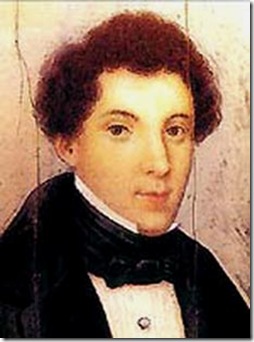The Delray String Quartet that finished its sixth season this past weekend at the Colony Hotel in its namesake’s historic downtown is a foursome that has been playing together more frequently than its earlier iterations, thanks to its expanded three-county performance schedule.
And the extra time together showed Sunday, with excellent performances of quartets by Arriaga and Tchaikovsky that were fully in the spirit and style of their very different composers. As a bonus, the quartet listed its programs for the upcoming seventh season, and it is a good series, with rarities, American works and core Germanic classics that make up concerts truly worth looking forward to.
Sunday’s program opened with the Quartet No. 2 (in A) of the sadly short-lived Spanish composer Juan Arriaga, “the Spanish Mozart,” who died 10 days shy of his 20th birthday. Arriaga was without doubt a major talent, and this quartet, one of three the teenage composer finished, offers a telling demonstration of the potential that was lost when he died.
This is a sunny, inventive, vigorous piece, and the Delray played it that way. The first movement chugged along in good Haydnesque fashion, with an admirable balance between motifs and accompaniments. In the opening section, for instance, second violinist Megan McClendon and violist Richard Fleischman kept the repeated chord figures delicate but persistent, setting an ideal backdrop for the first violinist Mei-Mei Luo’s playing of the main theme, and cellist Claudio Jaffé’s reading of the precisely etched falling figure that answered it.
The theme-and-variations second movement offered a good, well-played variety of styles, from the first violin’s florid elaboration of the theme in the first variation and the sparkle of McClendon and Jaffé’s leaping figures in the second, to the somber beauty of the minor-key variation, soulfully played by Fleischman, and the charm of the all-pizzicato fourth variation that followed.
The group gave the trio section of the third-movement minuet an almost Beethovenian sense of expectant stasis, which helped create maximum contrast for the headlong joy of the finale; the Delray played it closing pages particularly well, with a substantial head of steam before heading into the big arpeggio gesture of the last bars.
The second half of the concert was devoted to the String Quartet No. 1 (in D, Op. 11) of Tchaikovsky, one of the most popular of all quartets. Here, too, the Delray entered entirely into the world of this work, which is so suffused with indelible melody and effective instrumental color.
Of particular note was the well-known Andante cantabile second movement, whose secondary theme is so treacherous for the first violin in that it’s very plain, but it’s in a tough key and it’s completely exposed over the gentlest of accompaniments. This has often been a place for tuning to go awry, but on Sunday, Luo handled it with accuracy and elegance, so much so that the composer’s transition back to the main theme sounded logical rather than forced.
The Scherzo movement, essentially a folk dance, was played with strong, but not too strong, offbeat accents, and the closing movement had plenty of fire after the light, almost offhand interpretation of the opening bars. Jaffé was especially good in the beauty of his upper-register playing in the movement’s secondary folk tune, toward the end.
The Tchaikovsky received rapturous applause, and as an encore, the Delrays played a William Zinn arrangement of a rag by Scott Joplin: Country Club, published in 1909. It was a charming piece, ably performed, and it made a smile-inducing end to what has been a watershed season for this Palm Beach County ensemble.
***
Five programs are on the schedule for the Delray’s seventh season, which again will feature performances in Miami-Dade and Broward counties as well as the Colony. Two American works — the Fourth Quartet of Kenneth Fuchs (in December) and the Second Quartet of Randall Thompson (in March) – are planned along with rarities such as the Piano Quintet of Jean Sibelius (in March), which will feature pianist Tao Lin. Canonical works by Haydn (No. 32 in C, The Bird), Beethoven (No. 6 in B-flat, Op. 18, No. 6), Brahms (No. 2 in A minor, Op. 51, No. 2) and Schumann (No. 3 in A, Op. 41, No. 3) also are scheduled, along with works by Shostakovich (No. 7 in F-sharp minor, Op. 108) and Tchaikovsky ( No. 2 in F, Op. 22). For more information, call 213-4138 or visit www.delraystringquartet.com.
